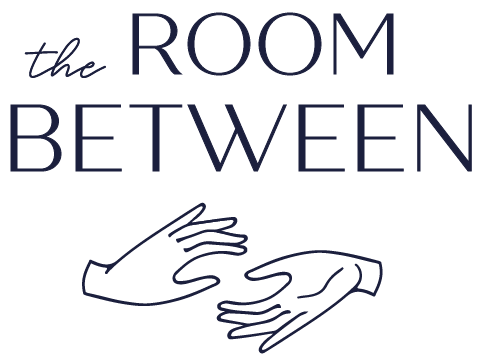One of our areas of expertise at The Room Between is relationship therapy. When people hear that, they often assume it’s for couples.
But life is full of many different types of relationships, all of which affect and interact with one another in different ways.
More than just romantic partnerships, we have relationships with our family, our friends, our colleagues, and — the most overlooked — with ourselves.
Looking inward
Often when people come to therapy to work on their relationships, they’re looking outward. They’re thinking about the people in their lives and how to protect or repair these relationships.
But people can underestimate the extent to which a difficult or just unexplored relationship with yourself impacts your whole network of relationships.
Rather than thinking about working either on ourselves or our relationships, our approach at The Room Between is to think about both together: how do I look after me and my needs in order to look after my relationships?
Not one, but many
We’re used to thinking of ourselves as a single entity, but actually we’re a whole set of different parts that have been formed and shaped by different experiences.
This is especially true when it comes to trauma. The psychological theory is that when we’re hurt, that wounded part of ourselves becomes cut off from the rest of us.
Exiling this wounded part is a form of self-protection; it prevents us from dealing with something painful or difficult and allows us to carry on functioning.
Protecting ourselves from pain
Separating ourselves from a difficult experience through this exiling process can work really well for much of the time — for years even.
But when something happens in our current day-to-day lives, we can find ourselves jumping to protect that wounded part in an attempt to avoid it feeling pain again.
For example, an angry or self-deprecating part may feel the need to spring into action and protect a neglected inner child part.
That urge to protect means we react from a place of hurt. That might mean responding in a way that feels out of character or that doesn’t align with our current values.
Getting to know you
This is why approaching things through a relationship-based lens is so valuable.
By starting with our relationship with ourselves, we can connect the experiences we’ve gone through with the parts that have developed in response.
It’s not about ignoring or getting rid of these parts — they’re our context, and they’ve played a key role in helping us survive the difficulties life’s thrown at us.
What we focus on instead in our therapy sessions is acknowledging and getting to know these different parts of ourselves.
Getting to know your needs
Understanding our relationships with the different parts of ourselves has a whole range of benefits.
Often when we’re triggered, we act in a way we’re not happy with and blame ourselves. Actually, we need to respond with curiosity, thinking about which parts have been activated and why.
Once we acknowledge and get to know the different parts, we can discover what they need in order to feel soothed.
That way, when something happens you’re able to more easily recognise and respond to your different parts with understanding and compassion.
Being able to soothe the many different parts that make us who we are allows us to react in a way that’s in line with our current values, regaining a sense of calm.
Our work
Relationships have a huge impact on how happy and fulfilled we feel.
People often get in touch thinking about their relationships with others — repeating patterns that are no longer useful to them, for example, or struggling with intimacy.
By starting with that fundamental relationship with ourselves, it can help us understand and shape our relationships with others and to show up in those relationships in a way that feels true to our values.
You’ll find more about our therapy sessions and relationship-focused approach on the website, and you can also book in for an initial 10-minute chat with Dr Major to find out more about working with The Room Between.


